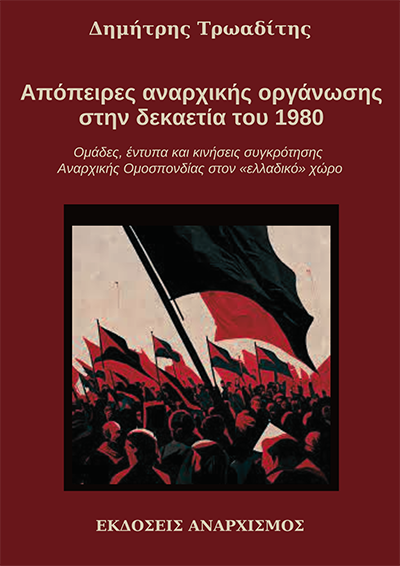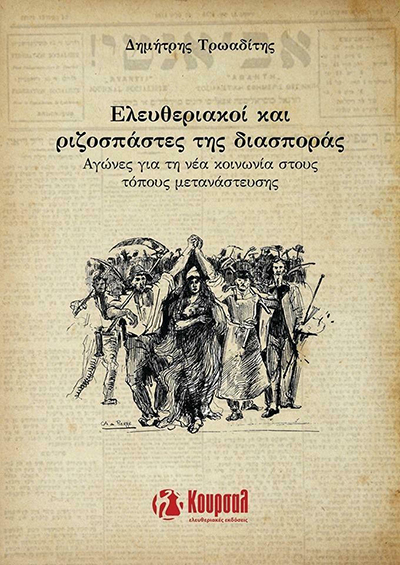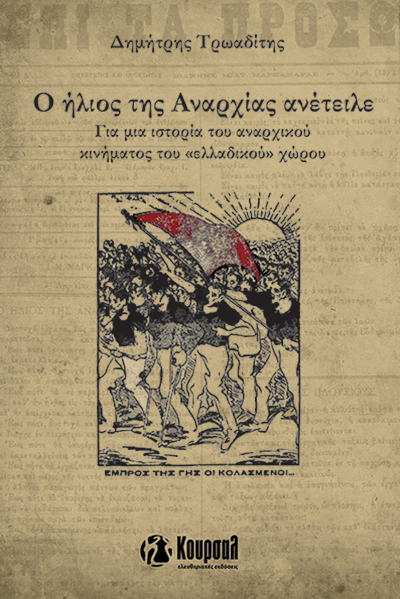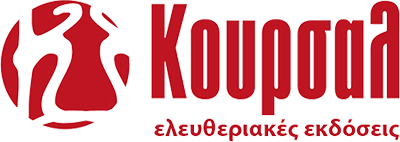- Λεπτομέρειες
- Dimitris Troaditis
- English
During the second half of the 19th century, Patras and Ermoupolis (in the island of Syros) were the two largest ports of Greece and along with Athens were the first urban and commercial centre.
During 1860s, an Italian community constituted the 10% of the local total population in Patras playing an important role in the everyday life of the city. This migrant community established during 1848-1850 by refugees, mostly socialists and anarchists. But it seems that the bulk of Italians left the city in late 1860 to early 1870 and only a small number of Italians remained. Most historians argue that anarchist ideas have emerged in Greece, either by the radical elements who resided in the Ionian Islands or by the occasional activity by a few European anarchists and other revolutionaries, such as the Italian Amílcare Tsipriani and French Gustave Flourans. Also, the events of the Paris Commune of 1871 seem to have had a catalytic effect to the radical elements of Patras particularly and the Western Peloponnese in general. So, apparently small groups of friends or clubs, or secret discussion societies formed.
We are in a period when in, on one side, the capitalist development started to emerge in Greece through the inflow of foreign capital by which the first industrial units, banks and various companies created and, on the other side, an overall bad situation and disorderly was dominant, with raisin issue especially in Western Peloponnese. Amongst those conditions anarchists and other revolutionaries of this period found a fertile ground to propagate and disseminate their ideas to the oppressed people of Patras and surrounding small towns villages. The social divisions and inequality have proved to be strong determinants in the development of anarchist and revolutionary ideas. Already in 1864, in Patras, several revolutionaries incited their ideas, trying to rouse the people. Among them was someone named Theotokatos for who said that he incited at every opportunity the anarchist ideas, though there are no other details about him.
In early 1876, the Democratic Association of People formed in Patras. The most important members of this Association were intellectuals and a few employees. They were Dionysis Ampelikopoulos, a high school mathematician who had a knowledge of anarchist, socialist and revolutionary tendencies of the period, Konstantinow Mpompotis, a lawyer, Konstantinos Grimmanis, Alexandros Eymorfopoulos (son of the owner of the printing company "Phoenix" and newspaper editor Panagiotis Evmorfopoulos), Ioannis Asimakopoulos, George Paparritor, a rentier (who later worked with socialist Plato Drakouli), Dimitris Spatharas, Panagiotis Sougleris and George Stratos. John Filios was the link of the Association with revolutionary circles of Athens.
The members of the Association were meeting in a special place where there was a remarkable library decorated with Paris Commune images. Along with the Association, a circle of youngsters, mostly students, formed as well as the People’s School, a kind of open university, after the initiative of liberals such as Andreas Rigopoulos, Vasilis Kalliontzis and others.
Of the first actions of the Association was the publication of a newspaper and contacts...
- Λεπτομέρειες
- Dimitris Troaditis
- English
Stavros Kouchtsoglous born in Istanbul (Turkey) in 1878. According to his nephew Nickos Kouchtsoglou, a lawyer, Stavros Kouchtsoglous’s was descended from Propontida, Thrace. Sent to attend high school of Tsotylion, Kozani, a reformatory school of this period. But he was devoted, instead, since his early years in the struggle for the social revolution. Since he was a boy he worked as a cigarette maker and also in Piraeus as a seafarer.
He lived a turbulent life and influenced by the ideas of Michael Bakounin as well as the ideas of other anarchist thinkers. He traveled to several countries of Europe,...
- Λεπτομέρειες
- P. Pomonis
- English
Written by P. Pomonis
Part of the pamphlet “The early days of Greek Anarchism” published by KSL (end of the 19th - begining of the 20th century)
Social radicalism, which grew in Europe during the 19th century, marking future history with movements, revolts and revolutions, had an important influence in Greece. According to M. Demetriou: «....The ideas of social radicalism were introduced in Greece from Europe, with its ideological radiance and revolutionary traditions, in the 1870’s. In Europe, that period was marked by the 70 days of popular revolutionary power of the Paris Commune (1871)... At the same time, important social...
Στο κτήριο της Ελληνικής κοινότητας της Μελβούρνης στις 18/07/2019
Με τον Ελευθεριακό στο Αυτοδιαχειριζόμενο Στέκι Πέρασμα, 22/01/2018




